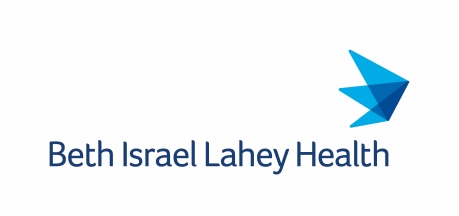RELEASE EMBARGOED UNTIL: Monday, December 4, 2000 5:00 p.m. EST
Contact: Bill Schaller(617) 632-8062[email protected]
Study finds Internet and Telemedicine Technologies Improve Care for High-Risk Infants
Boston--Incorporating Internet-based telemedicine technologies into the care of a very low birth weight infant results in greater family satisfaction with the care and may reduce the infant's length of hospitalization, according to a study by researchers at Beth Israel Deaconess Medical Center. The findings are published in the December issue of Pediatrics, the journal of the American Academy of Pediatrics.
The study involved 56 very low birth weight infants who were hospitalized in the Beth Israel Deaconess neonatal intensive care unit (NICU). Through random selection, the families of 26 infants were given access to Baby CareLink, a telemedicine program that utilizes Internet and videoconferencing technologies. The remaining 30 infants were assigned to the control group. All infants in the study received the same level of medical care and support. Both the intervention and the control groups had similar patient and family characteristics, inpatient morbidity rates, birth weight, gestational age, maternal race, insurance status, and educational level.
Utilizing the Picker Institute's Neonatal Intensive Care Unit Family Satisfaction survey, the researchers found that families who used Baby CareLink gave higher ratings for the overall quality of care for their infants than did the families in the control group. (Of the families using Baby CareLink, 3 percent reported problems with the care compared to 13 percent of the control group families.) The Baby CareLink families also reported fewer problems with the continuity of care, infant transition from the NICU to home, family and infant support, and family information and education.
Interestingly, the researchers found that infants in the intervention group typically were discharged home sooner than were the infants in the control group. While this observation was not statistically significant due to the small size of the study, the researchers believe this finding would hold true in a larger study.
"Having a baby in an intensive care unit is obviously among the most emotionally distressing situations that families can face," explains James E. Gray, M.D., the paper's lead author and director of newborn services at Beth Israel Deaconess. "We found that by utilizing the Internet and videoconferencing to share information and to provide families another way to remain connected with their babies we were able to better meet families' emotional and educational needs. This resulted in families being more satisfied with the care and better prepared to take their babies home."
Families enrolled in the intervention group were given on loan a multimedia computer (equipped with a 233 MHz Pentium II processor and 32MB of RAM) and videoconferencing equipment for use in their homes.
By accessing the secure, password protected Baby CareLink web site, families could view photos of their infant, send confidential messages to care providers, review an infant's daily clinical report, watch educational videos, read baby care information, and complete a training course to help them prepare for the infant's discharge home. On average, families accessed the web site daily. The most popular features were the photo gallery, the daily clinical report and the message center.
The videoconferencing capabilities enabled families to have virtual visits and to participate in distance learning from their homes during an infant's hospitalization. It also allowed caregivers to make virtual house calls after an infant was discharged home. On average, each family made more than 12 videoconferences during the six month study.
"This high-tech, high-touch approach to caring for high risk infants not only provides piece of mind for the families, but we have proved that it is a better way to practice medicine," says Charles A. Safran, M.D., a co-author of the paper and the study's principal investigator at Beth Israel Deaconess. "We have shown that technology can be kind and gentle."
The paper's co-authors are Roger B. Davis, Sc.D., Grace Pompilio-Weitzner, R.N., Jane E. Stewart, M.D., Linda Zaccagnini R.N., and DeWayne Pursley, M.D.
The study was funded by the National Library of Medicine's Telemedicine Initiative.
Clinician Support Technology (CST) is the developer and distributor of Baby CareLink applications. Safran is chief executive officer of CST, Pompilio-Weitzner is a clinical content specialist to CST, and Gray holds equity in and serves as a consultant to CST.
Beth Israel Deaconess Medical Center is a major patient care, research and teaching affiliate of Harvard Medical School and a founding member of CareGroup Healthcare System. BIDMC is the third largest recipient of National Institutes of Health research funding among independent U.S. teaching hospitals.
# # #
Editor's Note:
Jim Gray will be available for comment on Friday, Dec. 1 and (by telephone) on Monday, Dec. 4. 11:30 a.m.-2:00 p.m. EST. Other authors are available for comment outside these times.
Families who are currently using Baby CareLink are available for comment.
